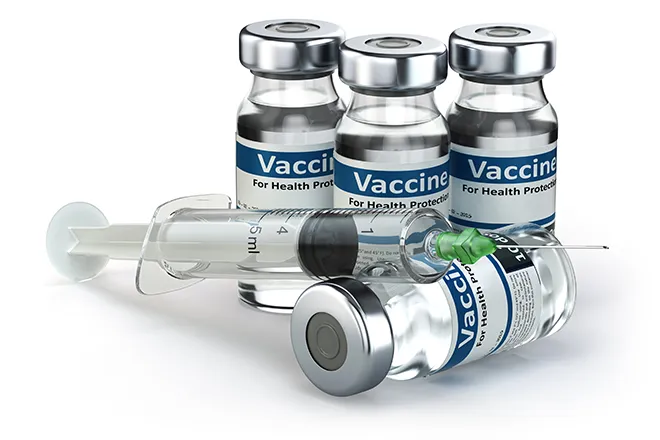
Daily Audio Newscast Afternoon Update - October 28, 2025
© INDU BACHKHETI - iStock-1336427297
News from around the nation.
Hurricane Melissa, now stronger than Katrina, is closing in on Jamaica; Ohio teachers say investing in workers boosts rural communities; Nonprofit asks for help tracking pregnant ICE detainees; Amid SNAP trouble, tips emerge for effective food drives in MN.
Transcript
The Public News Service Tuesday afternoon update.
I'm Mike Clifford.
Hurricane Melissa closing in on Jamaica.
Early Tuesday as the storm weather deteriorated across Jamaica, the storm's peak intensity surpassed that of Hurricane Katrina in 2005.
That from the Washington Post.
The Post notes Melissa expected to push ashore in St.
Elizabeth Parish, probably between Black River and Treasure Beach, that is roughly 60 to 70 miles west of the capital, Kingston, before crossing the island over a period of six hours.
Meantime, as rural communities across the country struggle with hospital closures, shrinking job opportunities and higher cost of living, educators in Ohio say it's time for federal policies that prioritize working people. - The new 2025 Rural Policy Action Report released by the Rural Democracy Initiative outlines what supporters call a roadmap to rebuild local economies from the ground up.
Melissa Cropper, President of the Ohio Federation of Teachers says the report's recommendations are based on four pillars.
Reining in corporate greed, investing in infrastructure, ensuring fairness and protecting natural resources.
It is all about empowering workers and giving them fair opportunities, good jobs, good benefits.
Cropper says the recent government shutdown has deepened inequality, especially in rural areas where residents face compounding challenges.
Farah Siddiqi reporting.
And as Illinois continues to be the target of aggressive federal immigration operations, among reports of more than a thousand being arrested so far, limited information has been shared about ICE detainees who are pregnant.
The Women's Refugee Commission created the Detention Pregnancy Tracker to collect real-time information about pregnant, postpartum, and nursing women detained by ICE.
A current policy restricts the agency from arresting immigrants who are pregnant or postpartum except for an extraordinary circumstances but Melanie Nezer with the Commission says ongoing reports indicate the policy isn't being followed.
We have learned that women are miscarrying in detention, that women are not getting the nutrition that they need for healthy pregnancies and they are showing up after being deported malnourished.
ICE officials have said pregnant women are housed in facilities to receive proper care.
Anyone with knowledge about pregnant people in detention can submit reports online at detention pregnancy tracker dot com and Governor Tim Walz announced Monday additional state support for Minnesota food shelves was snapped close to running out in the government shutdown but he warns it won't be enough.
Stephanie de la host of the group move for hunger says if you're inspired to mobilize your neighbors and collect items it's best to call the local food shelf first and see what's needed.
Your local food pantry might have just gotten a huge donation of box mashed potatoes and you might think you're doing something great by putting together all these sides for Thanksgiving and asking people for boxed mashed potatoes but that's not really the need.
Move for hunger is in all 50 states and will transport big enough loads for free.
I'm Mike Moen.
This is Public News Service.
Next to Missouri where they've lost 19 hospitals since 2014, almost a dozen in rural areas, state health officials say many more are struggling to survive as cost rise and patient numbers fall.
While the state hasn't seen a new closure in the past year, experts warn many hospitals are still operating on razor-thin margins.
Dave Dillon with the Missouri Hospital Association warns that rural health facilities are often the hub of care for their community and when they close the ripple effects reach far beyond a lack of emergency access to care.
It often is the organization that recruits physicians and other caregivers to work locally and by extension those professionals and those communities that rural hospitals serve tend to be kind of an economic engine in those communities.
He says one reason rural hospitals operate on thin margins is that many of their patients depend on Medicare and Medicaid programs that rarely cover full cost and proposed federal cuts to Medicaid are expected to make it tougher.
Crystal Blair reporting.
Next up social media school pressures and anti-LGBTQ discrimination are among the factors that combine to create new challenges for today's kids and teens.
Research on brain science shows young people's judgment, impulse control and planning skills don't fully develop until about age 24 or 25.
In her book Thrive, Lisa Lawson with the Annie E. Casey Foundation says young people today face a different adolescence than experienced by others just 10 or 20 years ago.
They are navigating an incredibly complex world with changes in technology, with a changing economy, with a complex external environment and young people really need support of caring adults.
Research by the Casey Foundation ranks New Mexico 50th in the nation for child well-being covering ages from birth through 24.
I'm Roz Brown.
Finally, efforts to make communities more livable for people of all ages are getting a boost through community challenge grants from AARP Pennsylvania.
This year seven grantees have collectively received more than $73,000 to implement quick action projects.
Ashley Tracy with the Fishtown Neighbors Association in Philadelphia says her group received a $2,500 grant to conduct a walk audit along busy Girard Avenue identifying street crossing challenges for residents.
You know our elders and some of the disabled folks that we had on this audit with us going to be able to cross the street in a short amount of time that Philadelphia gives them.
Half of the point of this audit was like at the bare minimum people don't have enough time to cross safely.
Their findings are being compiled into a formal report for local elected officials and agencies responsible for street improvements.
Danielle Smith reporting.
This is Mike Clifford for Public News Service.
Member and listener supported.
Find our trust indicators at publicnewsservice.org

















